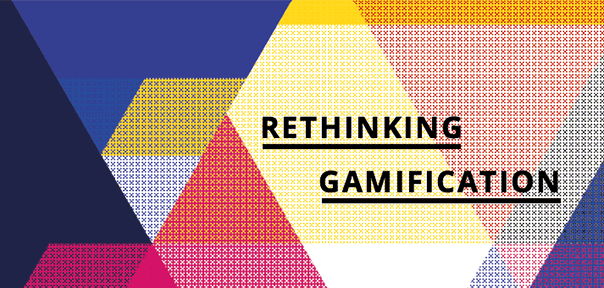
The Gamification Lab and the Hybrid Publishing Lab of Leuphana University just released a nice Creative Commons-licensed edited collection of contributions that are “Rethinking Gamification“. The PDF is freely available online, the print version will follow soon.
Continue reading
CFP: CHB Special Issue “Gamification”
We are inviting submissions to a special issue of Computers in Human Behavior, titled “Gamification: Gameful Design, Research, and Applications”. Note that we have extended the deadline to July 25, but are reviewing submissions as they come in. Continue reading
CFP: The Business of Gamification
We are pleased to invite you to submit a chapter for our book on gamification and business! This is probably one of the first edited books on this subject based on critical and analytical perspectives. It will appear with Routledge in 2015. Continue reading
Do Persuasive Technologies Persuade?

Gamification has become increasingly popular (Figure) and it is starting to establish itself as an independent vein of literature. However, gamification bears many similarities with other (somewhat scattered) conceptual developments. Perhaps the most analogous conceptual development is persuasive technology which, similarly to gamification, refers to technology being used to influence people’s psychological states and behavior. The differences are subtle; on the conceptual level, persuasive technology focuses more on social and communicative persuasion and attitude change (Fogg, 2002), whereas gamification centers more around invoking users’ (intrinsic) motivations (through gameful experiences and affordances – Huotari & Hamari, 2012). These similarities imply that research regarding the parallel developments most likely hold interesting findings also from the perspective of gamification. Continue reading
Demographic differences in perceived benefits from gamification
Everyone knows the blueprint of a common gamification attempt: badges, points and leaderboards for everyone (slightly exaggerating). Supposedly, a common belief is that there is a one-size-fits-all-solution that works for everyone. Consequently and probably with somewhat unwarranted expectations, popular sources (Gartner 2011; IEEE 2014) enthusiastically predict that organizations will increasingly adopt and implement gamification despite a lack of consistent body of empirical research studying the effects of gamification (see Hamari et al. 2014 for a literature reviews). Without knowledge of how different people react and perceive gamification, customizing, tailoring and targeting gamification solutions to different segments is difficult.
Does gamification work?
Understanding gamification and its effectiveness beyond anecdotal evidence and hype is evidently a pertinent practical issue as well as, increasingly, a scholarly pursuit. Regardless of the increasing amount of both industry chatter and scholarly articles, there still is a dearth of coherent understanding whether gamification works and under which circumstances. To address this gap, we reviewed empirical studies on gamification.